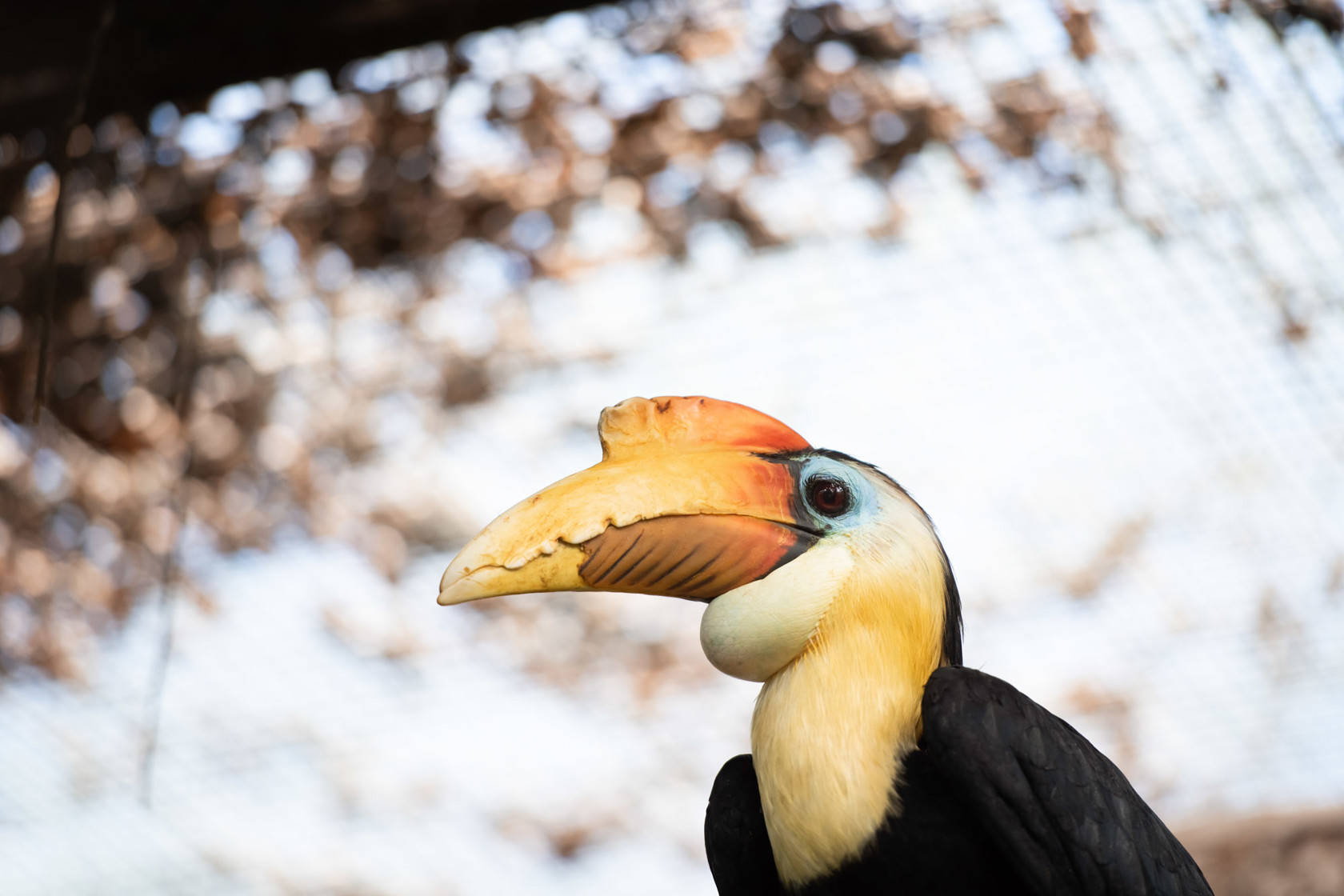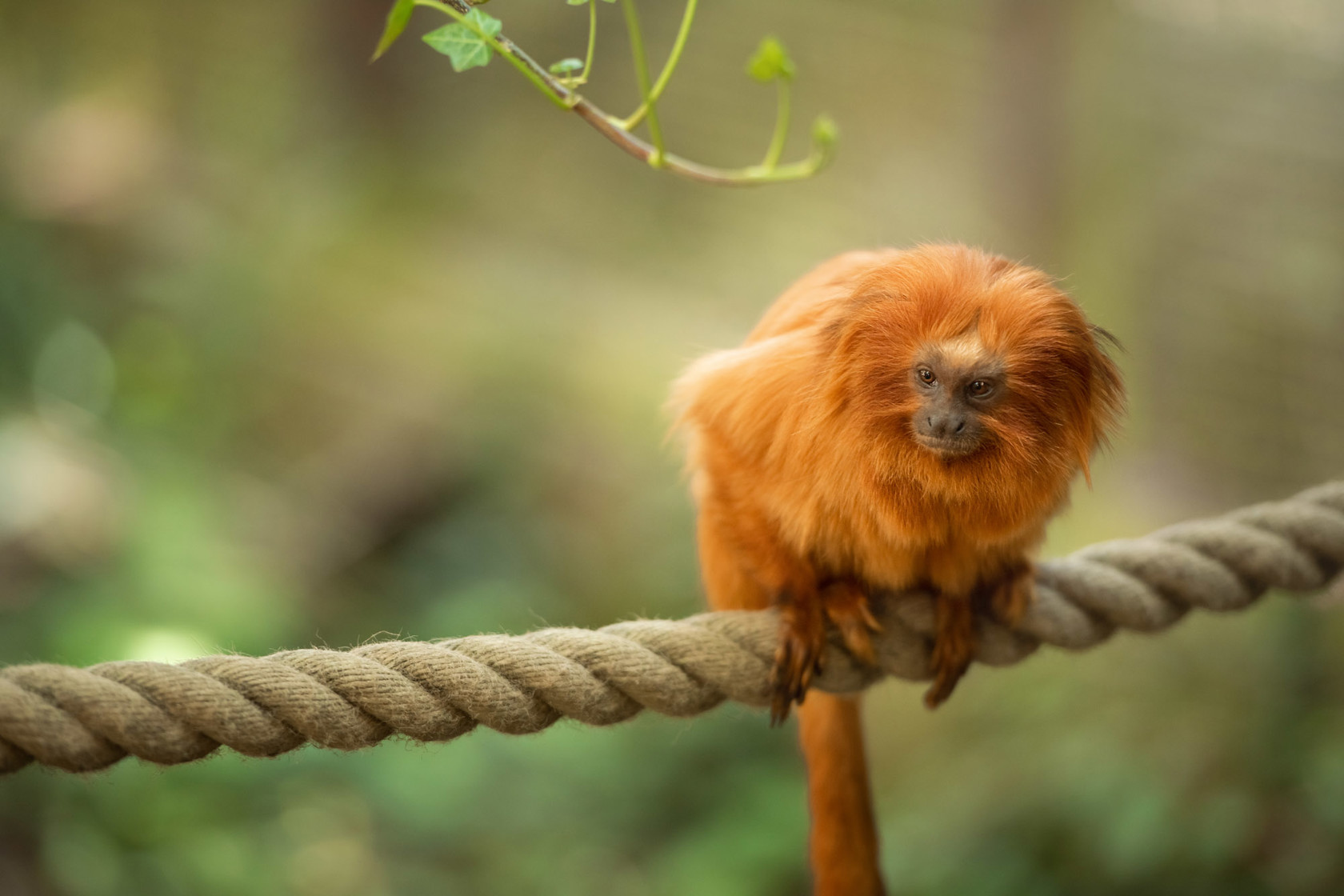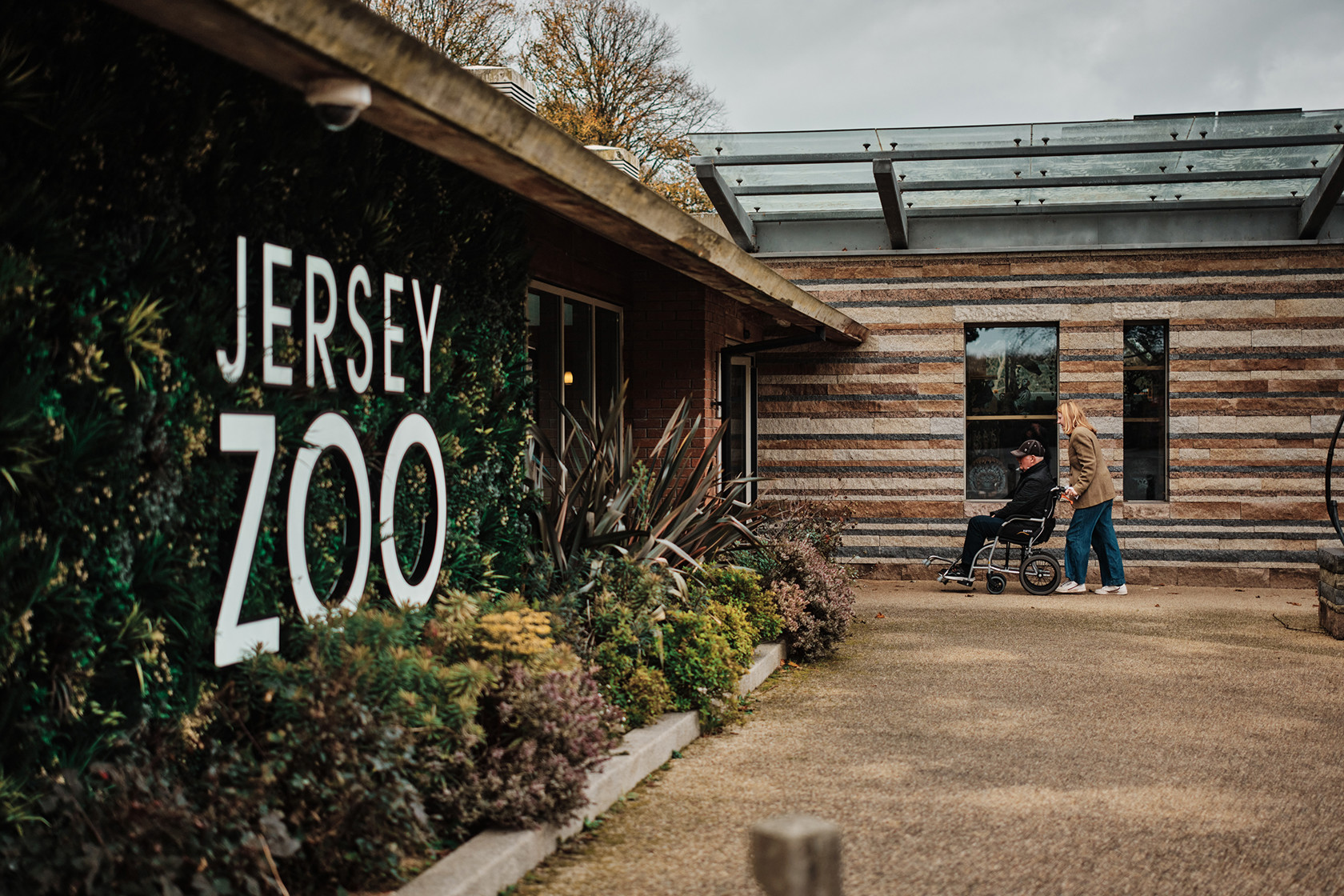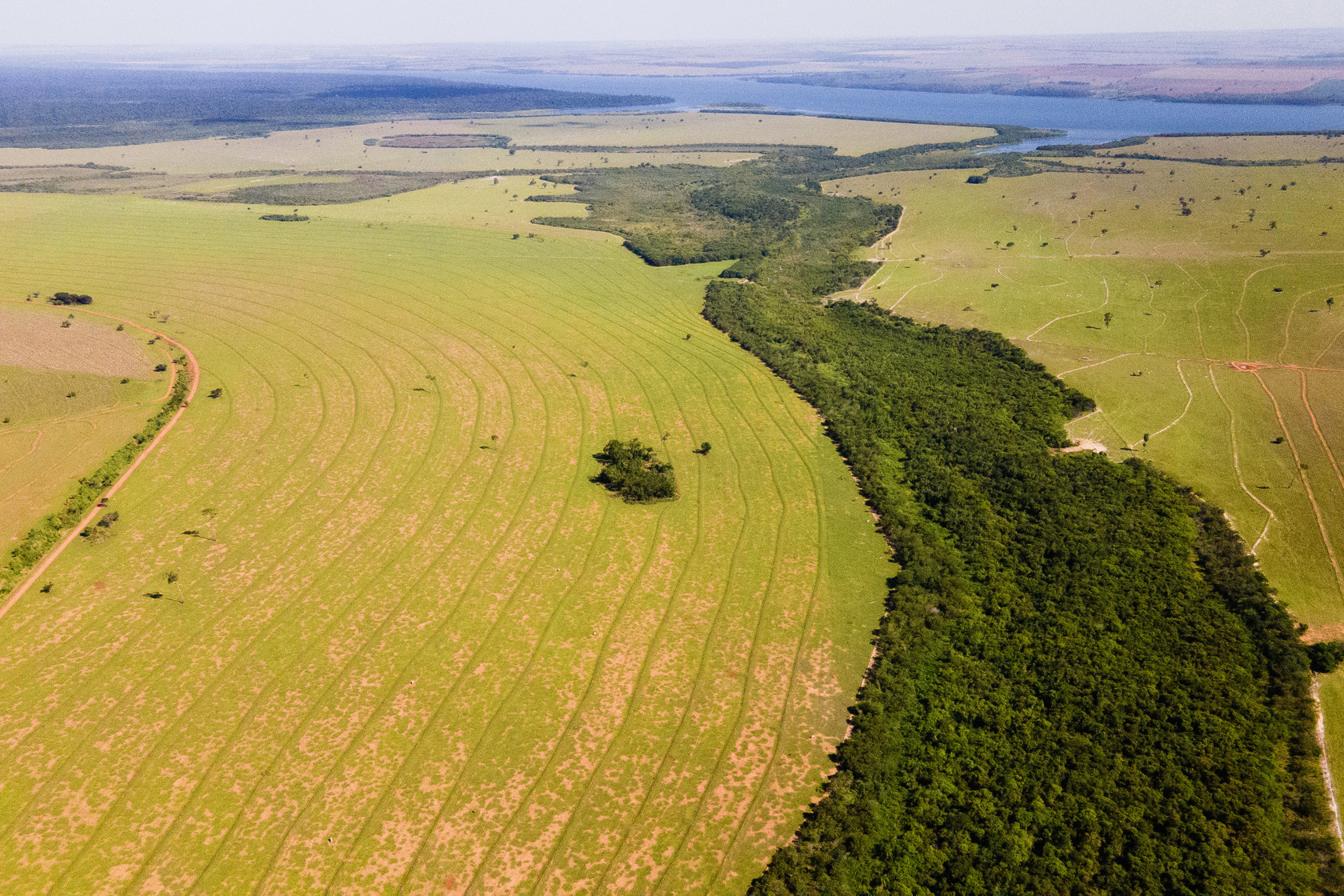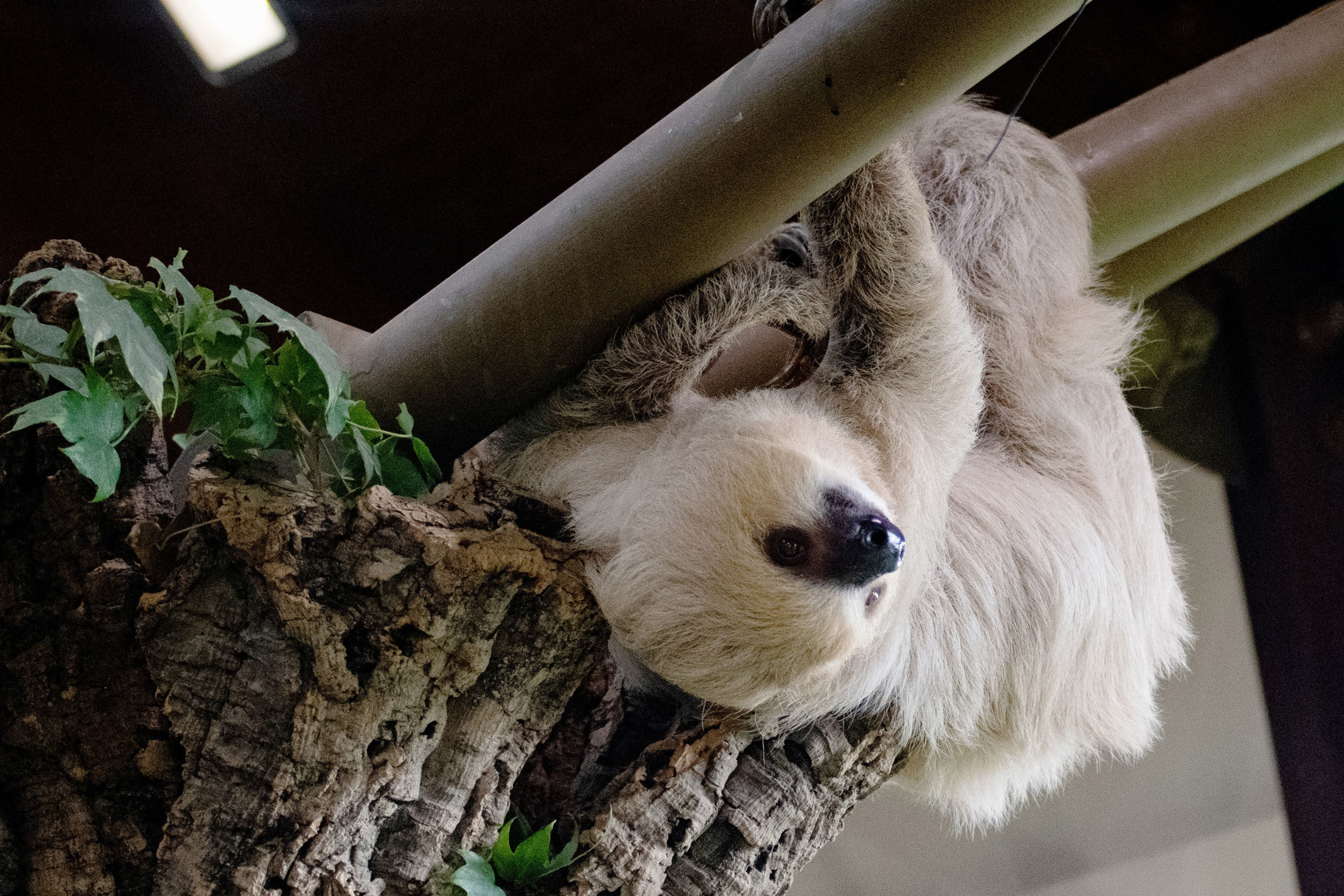From zoo to wild: how does Jersey Zoo support species around the world?
Friday 26 July 2024
When Gerald Durrell founded Jersey Zoo in 1959, he was a pioneer in his belief that good zoos could do great things for conservation. Today, Durrell continues that mission. Jersey Zoo is a centre of education, breeding, research and animal husbandry, which aids Durrell’s wildlife conservation and habitat restoration around the planet.
Our 32-acre zoo is home to approximately 1,249 individual animals*, and we work in 10 locations globally. The zoo is pivotal in delivering our global conservation goals and breeding some of the world’s most endangered species. Research and training in Jersey are essential to saving animals in the wild.
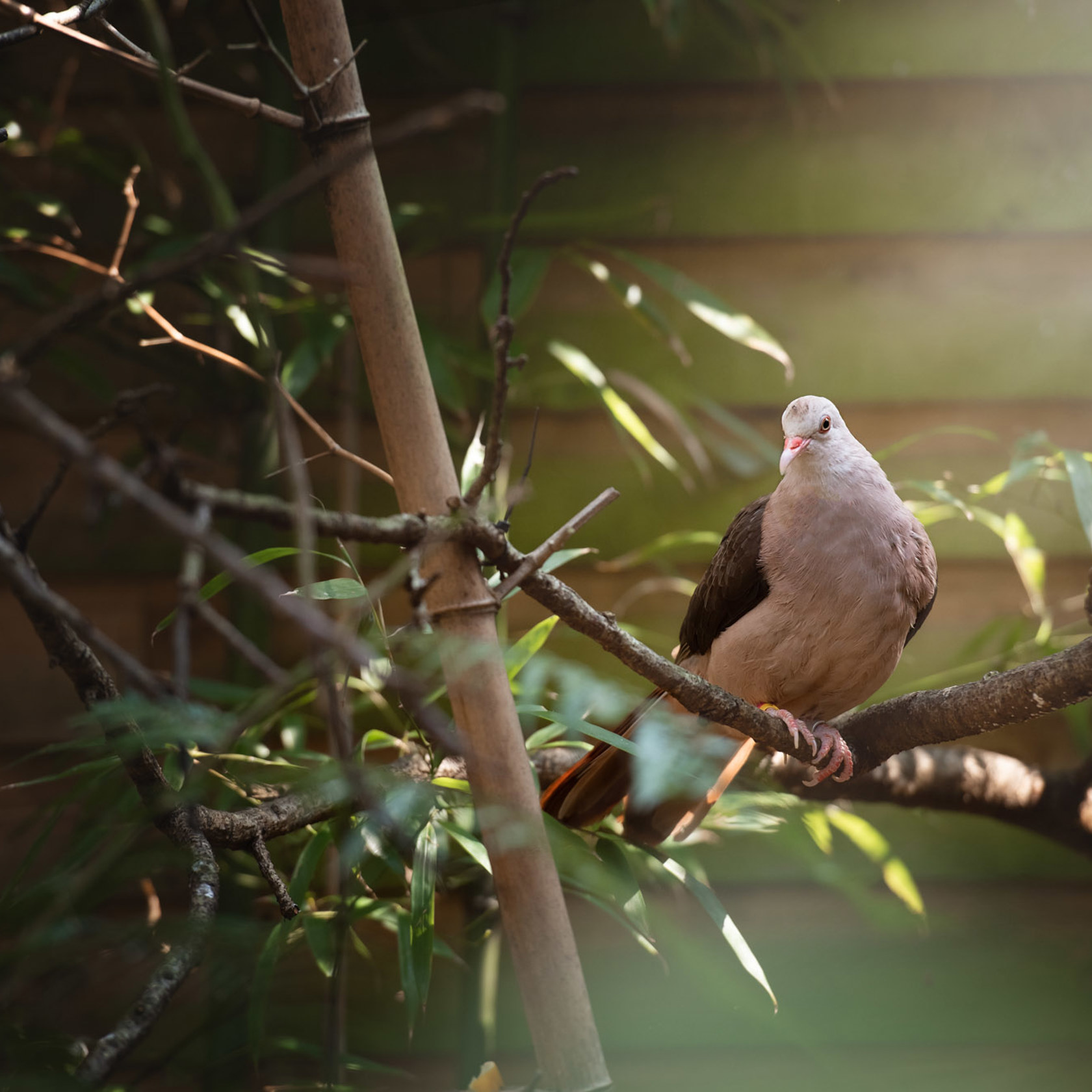
Pink pigeon
Estimated wild population in the 1990s: 10
Population at Jersey Zoo: 34
Individuals returned to home country: 23
Estimated wild numbers today: 600
The Mauritian pink pigeon was once considered one of the rarest birds in the world and almost went extinct in the 1990s after a rapid decline in population, mainly due to deforestation and the introduction of invasive species. Pink pigeon conservation is an important part of Durrell’s history, with Gerald Durrell setting up the first captive breeding programme. Our dedicated zookeepers and conservationists continue to study and breed the birds at Jersey Zoo and in Mauritius. With field teams and partners committed to saving this bird, the future looks much rosier.
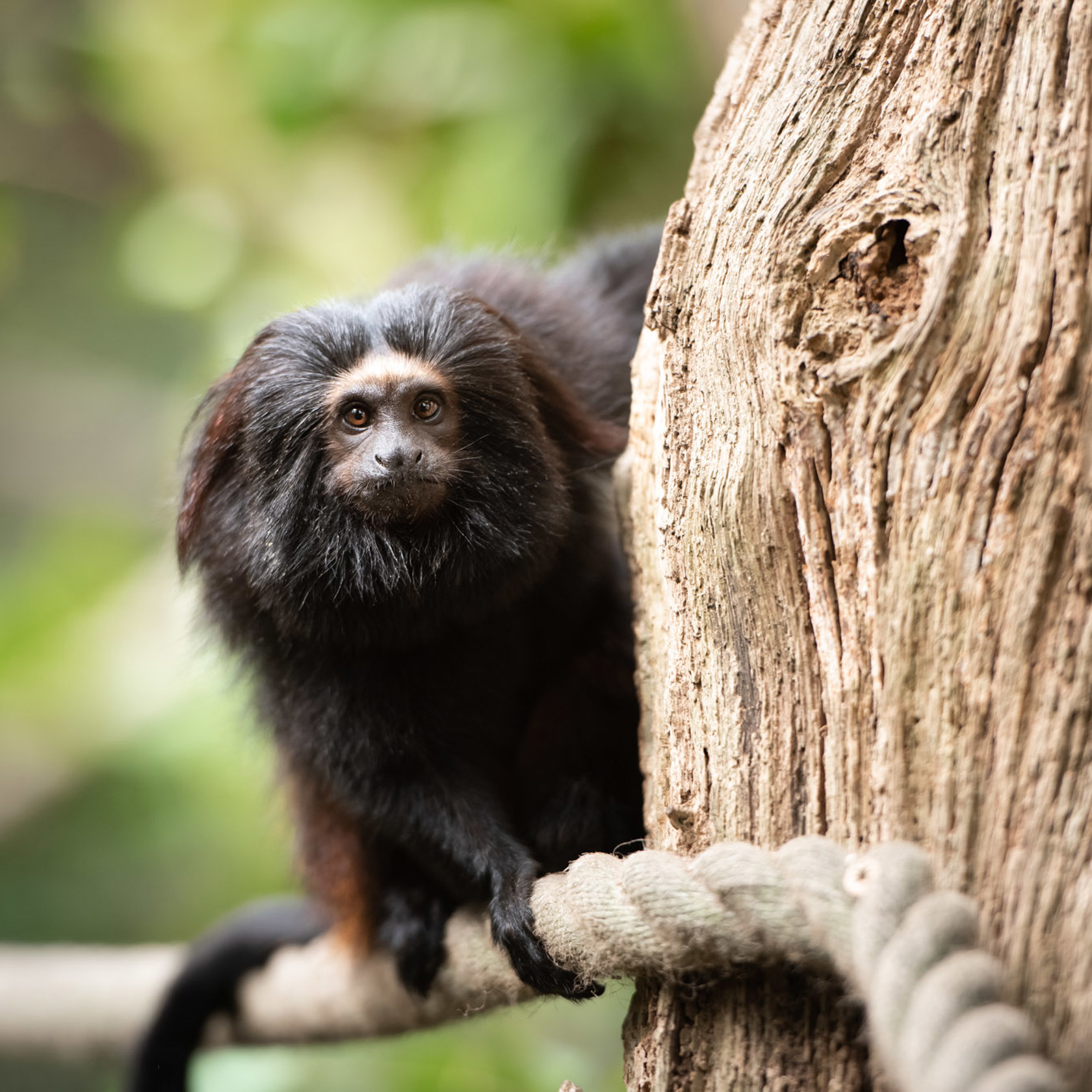
Black lion tamarin
Estimated wild population: 1,920
Population at Jersey Zoo: 13
Individuals returned to home country: 5
Hectares of forest habitat being restored: 432
Black lion tamarins are only found in the Atlantic Forest in Brazil, where just 6% of the interior habitat remains due to deforestation. Local partner Instituto de Pesquisas Ecológicas (IPE), with support from Durrell and Rewild Carbon business partners, are planting tree corridors to reconnect isolated forest fragments so that black lion tamarins and other species can travel through the forest safely. Jersey Zoo is the only place outside of Brazil where you can see black lion tamarins and the only international captive breeding group.
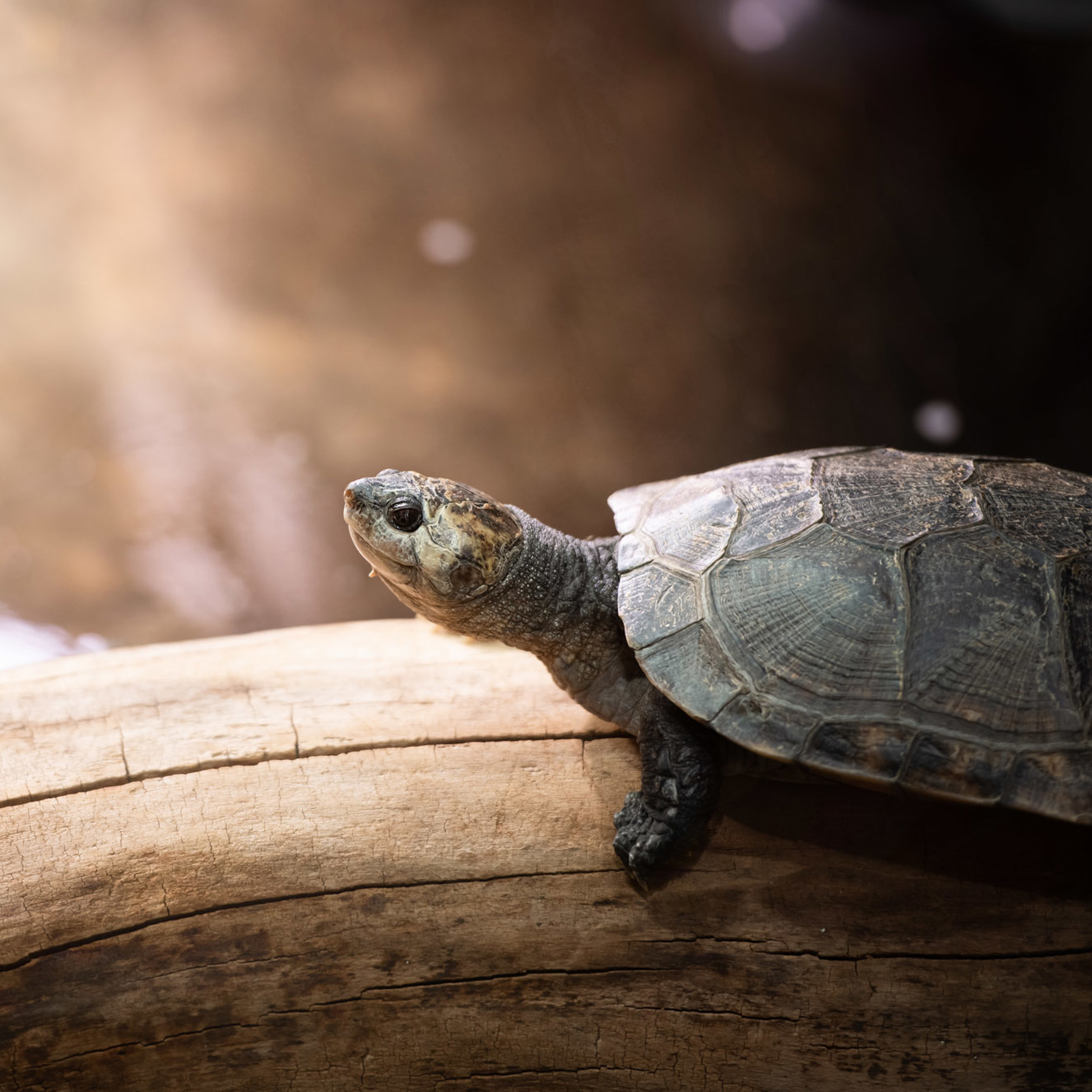
Madagascar big-headed turtle
Estimated wild population: 10,000
Population at Jersey Zoo: 5
Individuals released into the wild: 498
Juveniles translocated between 2010-2013: 70
The big-headed turtle population declined rapidly due to overfishing and hunting of females and their eggs, in addition to climate change affecting their breeding patterns. With the help of local communities, we have been working to protect this Critically Endangered turtle and its precious habitat since 1998 through captive breeding and release, head-starting young turtles, and intensive nest monitoring and protection. The pair at Jersey Zoo had six successful hatchlings in late 2022.
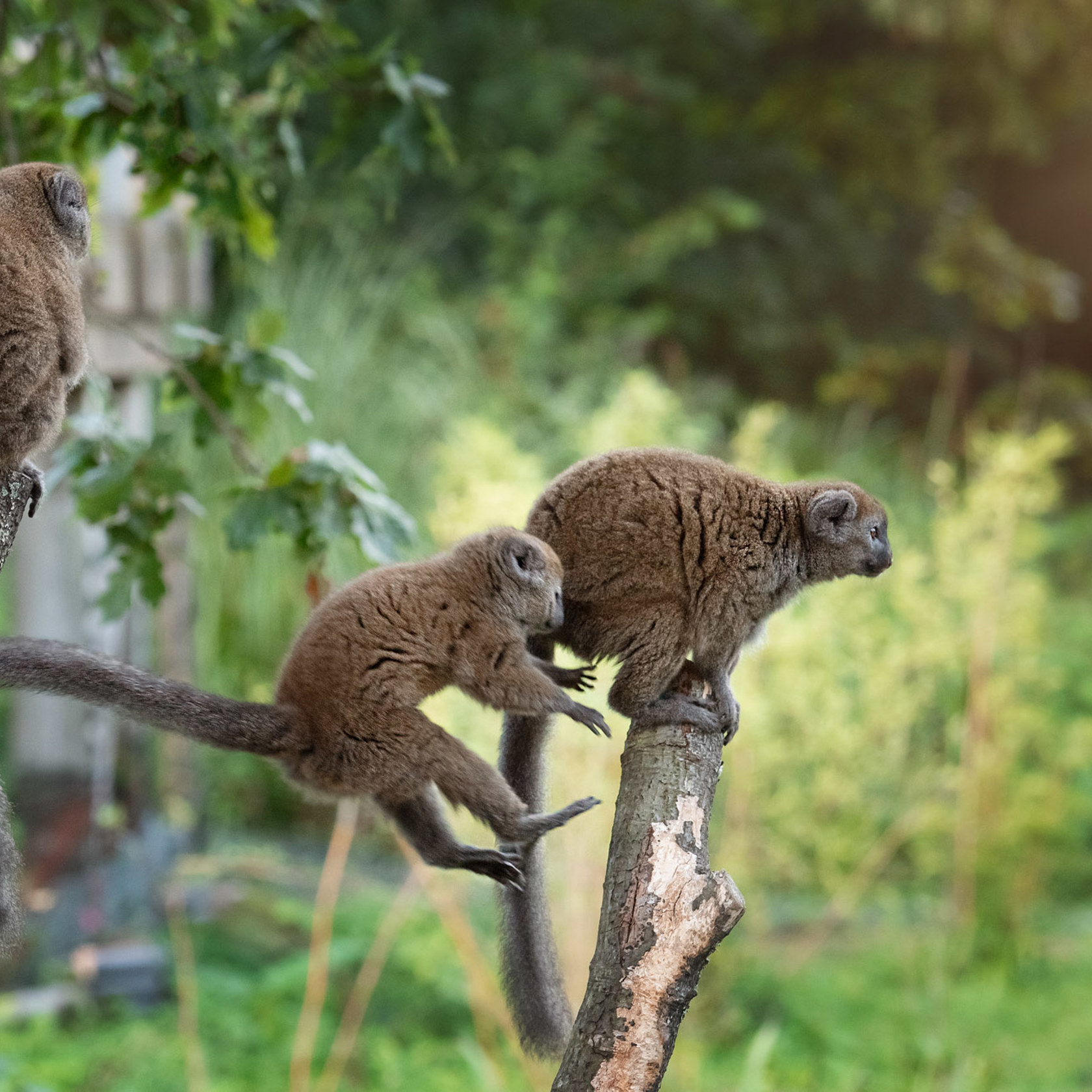
Alaotran gentle lemur
Estimated wild population: 5,000
Population at Jersey Zoo: 9
Infants born at Jersey Zoo: 28
Hectares of marshland habitat restored: 76
This highly threatened lemur is the only primate to live exclusively over water, hidden in the dense marshes surrounding Madagascar's largest lake, Lake Alaotra. We work with local communities in Madagascar to restore their marshland habitat and provide training to transform the removed invasive plants into usable and sellable products. In Jersey, we continue to successfully breed the “honey-coloured teddy bear”, as Gerald Durrell called them, with 28 infants born at the zoo.
Find out more about our work with the Alaotran gentle lemur.
Jersey Zoo is vital to Durrell’s mission of saving species from extinction. It is a window into the wild, connecting people to nature, and gives visitors the opportunity to meet some of the world’s most unique and fascinating animals. The zoo proudly contributes to international breeding programmes and helps to develop skills and knowledge to conserve species in the wild. However you support us, whether through zoo entry tickets, membership fees and or donations, you contribute to protecting wildlife in places like Madagascar, Brazil, and India, as well as closer to home in Jersey and the UK.
*as of February 2024, excluding invertebrates

